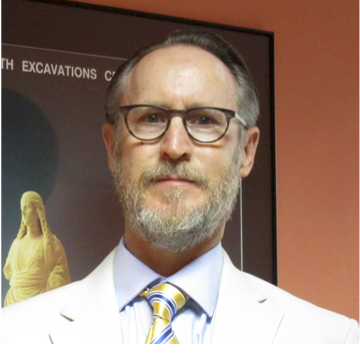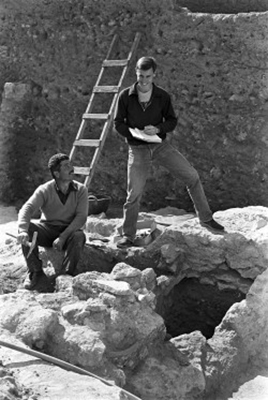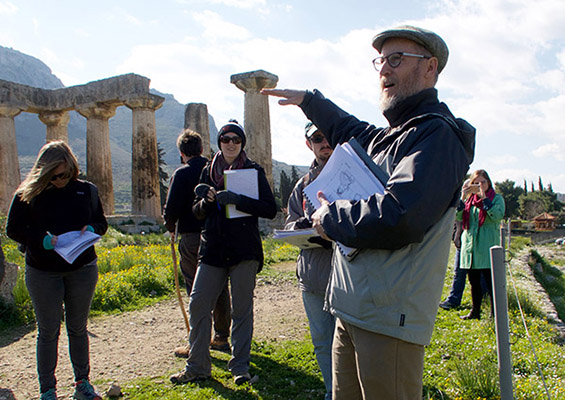Classics professor named director of excavations at longest-running American archaeological project in Greece

Department of Classics.
A Florida State University faculty member has achieved a top honor in the field of classical archaeology. Christopher A. Pfaff, an associate professor in FSU’s Department of Classics, was recently named director of excavations at Ancient Corinth by the American School of Classical Studies at Athens.
Considered one of the most important archaeological sites from the classical world, Ancient Corinth sits roughly halfway between Athens and Sparta in southern Greece. In its time, Corinth was one of the largest and most important city-states in ancient Greece, with a population estimated at 90,000 in 400 B.C. The Romans demolished the city-state in 146 B.C., built a new city in its place in 44 B.C., and later made it the provincial capital of Greece.
Since 1896, archaeological investigations of the Corinth Excavations by the American School of Classical Studies at Athens have revealed large parts of the ancient city.
“The excavation at Ancient Corinth is the longest-running American project in Greece and one of the most important excavation sites in the entire eastern Mediterranean,” said Professor Daniel J. Pullen, chair of FSU’s classics department. “The excavations serve as the training ground for archaeologists at the American School, and thus Professor Pfaff will play a key role in the training of the next generation of classical archaeologists.”

Pfaff, whose expertise lies in ancient Greek art and architecture, has participated in excavations at Ancient Corinth since 1981. He described that first excavation as life-altering.
“Digging there made it very clear to me that I wanted to do Greek archaeology for the rest of my career,” he said.
Pfaff has extensive field experience, in Corinth as well as in other locations, including seven seasons as an excavation trench supervisor and 20 seasons conducting architectural and sculptural research in the field.
In addition to his archaeological work, Pfaff’s publications have contributed significantly to the field. He is the author of “The Argive Heraion, Volume I: The Architecture of the Classical Temple of Hera” (Princeton: American School of Classical Studies at Athens, 2003), and is currently preparing a follow-up monograph, co-authored with Professor Carol Lawton of Lawrence University, on the architectural sculpture of the Classical Temple of Hera at the Argive Heraion, an ancient temple in Argive, Greece. Pfaff has also written articles on various other aspects of the Argive Heraion and on the Archaic architecture and Early Iron Age finds of Corinth.

One thing Pfaff said that may be surprising about Ancient Corinth is the fact that even though it has been excavated for more than a century, it continues to yield important information.
“There are still major questions that remain unanswered,” he said. “New and surprising information keeps coming to light every time you take a spade to the ground . . . . I enjoy new challenges. This job gives me a sense that I’m doing more for the field of archaeology than I ever could have done in a purely academic position, and that’s very satisfying.”
Pfaff will continue to teach at Florida State each fall and will spend the rest of his time at the American School.

